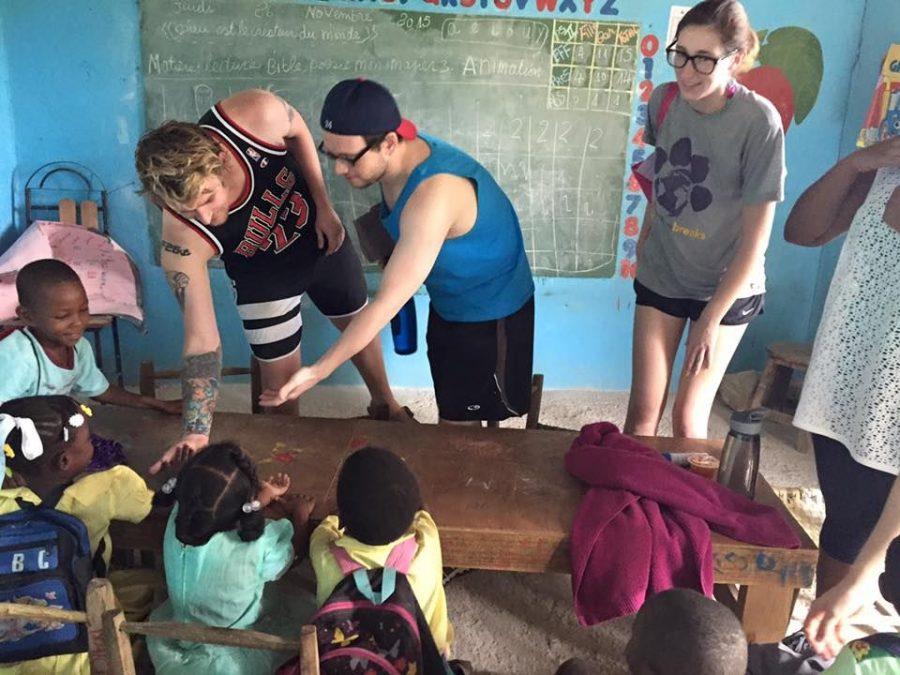Program offers service opportunities during break
March 28, 2016
Some students opt to spend their break volunteering instead of relaxing at the beach. The Alternative Breaks program provides students opportunities to spend school breaks helping others.
This time, one group will travel to New York City and another to Desab, Haiti.
The New York group will work with the Junior Achievement organization to provide information and materials on beginning budgeting for first and second graders, said Assistant Director of Student Engagement Bethany Green.
Administrative Assistant for the Human Environmental Sciences department David Johnson, who was instrumental in starting the campus Alternative Breaks program, is a site leader on the New York trip.
Student site leaders help plan trips, decide what social issue to focus on, recruit students and connect with organizations to work with, Green said.
Volunteers will work with children in a Bronx elementary school, Johnson said. Many of them are English as a Second Language students, and more than 90 percent are at the poverty level.
“We’ll be doing simplified programs,” he said. “We’ll give them a job, and we’ll give them Monopoly money.”
The children will learn basic money skills as they spend their money in a make-believe town, he said.
This will be the program’s third trip to Haiti.
Desab’s situation is unique, Green said. For more than 30 years, one American woman provided funds for the community. She never filed taxes, however, and now she is in jail.
Desab is rural, she said. People often walk five to 10 miles to town to attend school or visit the medical clinic, volunteer space and bakery.
More than 150 students attend the school, she said. Keeping it open is a financial struggle for the community.
“Us going in and actually teaching becomes a little bit more meaningful to them when they are having to release their teachers and basically figure out another way to educate their kids,” Green said.
English as a Second Language Instructor Mary Beth Willis traveled to Desab twice and is returning as a faculty representative.
“This past trip (Thanksgiving), we took a lot of dental supplies, and we’re taking those again,” she said. “We also noticed a huge need for basic medical supplies.”
Groups add issues to improve for every trip, Green said. This time, the Haiti group will learn basic first aid, and in turn, will teach community members.
The clinic is open one day a week, Willis said. For villagers living on $1 or $2 a day, the $15 fee may take away the option of seeking medical care.
“If we can get the basic stuff, especially antibiotic creams, that can help a ton,” she said. “A lot of their infections start as the little cuts that we don’t even think about because we have basic supplies.”
The group is also taking reusable plastic bowls to the children in Desab, Green said.
“They serve rice and beans for lunch at the school,” Willis said. “Sometimes kids don’t even have a bowl, or they forget them because they’re kids. If they don’t have them, then they don’t get to eat.”
Green said the lunch meal is often the only meal the children will get.
“It was kind of sad,” Willis said. “You’d see them get their one meal, and it’s a normal size bowl of rice and beans, and they’d put it inside their bag. We’d ask them, ‘What’s going on? Why aren’t they eating?’”
They were taking it home to share with their family, she said.
Students interested in going on trips should look for emails at the beginning of the fall semester, Green said. Trips fill up quickly. Site leader applications open in April.


